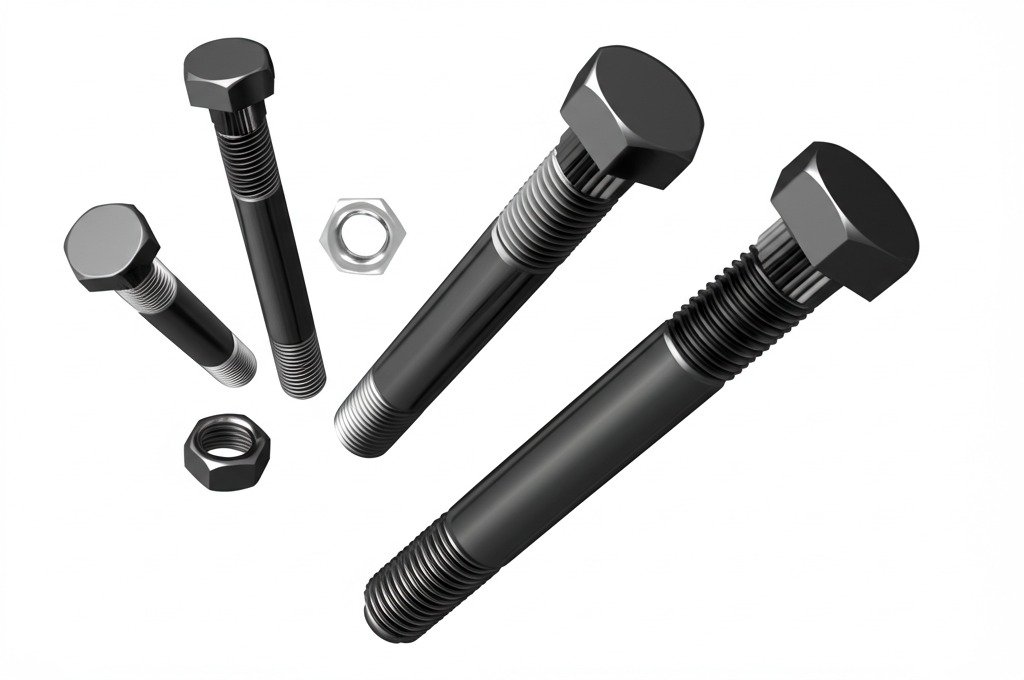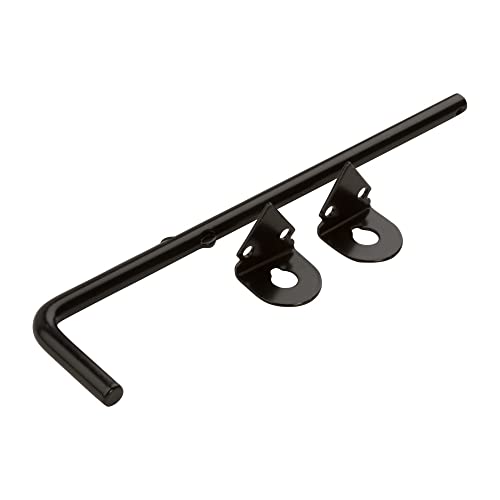By Nicolás Longo LinkedIn
(As an Amazon Associate we earn from qualifying purchases)
Bolts are a critical component in countless industrial and construction applications, yet their performance can be compromised by corrosion. This article provides an exhaustive guide on bolt coatings and rust resistance. You will learn why corrosion prevention is essential, explore various coating technologies, and discover practical tips and expert recommendations. With detailed research, comparative data insights, and innovative practices, this guide empowers you to maintain bolts that remain durable and reliable even in harsh environments. Our approach bridges technical precision and practical advice, enabling informed decisions when choosing bolt coatings for long-term rust resistance.
The Impact of Corrosion on Bolts
Corrosion affects bolts by weakening their structure, leading to premature failures. Bolts exposed to moisture, salt, and harsh chemicals are especially vulnerable. The degradation caused by corrosion can lead to compromised safety, increased maintenance costs, and costly downtime. Certified bolts treated with advanced coatings demonstrate significantly enhanced durability and performance. Regular inspections, proper installation, and preventive measures contribute to the longevity of these bolts. Research shows that corrosion can reduce the mechanical strength of bolts by up to 30% over time (NACE International). Preventing corrosion is critical for maintaining the integrity of bolt connections in various industrial applications.
Understanding Bolt Coatings: Mechanisms and Benefits
Bolt coatings act as a physical barrier against corrosive elements. They protect bolts by preventing direct contact with moisture and oxygen. Common coatings include zinc plating, cadmium plating, and powder coating. Zinc plating provides an economical, sacrificial layer that corrodes before the bolt. Cadmium offers superior corrosion resistance, especially in industrial environments, while powder coating creates a robust, durable finish. These coatings significantly extend the service life of bolts and reduce the risk of failure. Advanced coating technologies continuously evolve, providing improved adhesion and uniformity. Studies indicate that properly coated bolts can retain up to 90% of their original strength after prolonged exposure to corrosion (ASTM International). Using high-quality coatings ensures that bolts remain reliable over time.
Comparative Analysis of Coating Technologies for Bolts
Different coating techniques have unique advantages. Zinc plating, for example, is cost-effective and widely used for corrosion protection. Cadmium plating, while more expensive, offers enhanced resistance against severe environments. Powder coating provides a thick, durable finish with excellent adhesion. Comparative data reveals that powder-coated bolts exhibit up to 20% greater corrosion resistance compared to traditional zinc-plated bolts (Engineering Toolbox). It is essential to choose a coating that matches the environmental conditions and performance requirements of the application. Bolts with optimal coatings not only last longer but also contribute to overall safety and reduced maintenance costs.
Practical Tips for Selecting the Best Coatings for Bolts
When choosing a coating for bolts, consider the following steps:
- Assess the Environment: Evaluate exposure to moisture, chemicals, and temperature fluctuations.
- Compare Coating Types: Research the benefits of zinc, cadmium, powder, or even ceramic coatings.
- Review Technical Specifications: Consult product data sheets and certification standards like ASTM or ISO.
- Test Samples: Validate coating performance through corrosion resistance tests.
- Consult Experts: Seek recommendations from industry professionals with hands-on experience.
These practical steps help ensure that bolts are protected effectively against corrosion, thereby enhancing their longevity and structural reliability.
Data Insights and Research Findings on Bolt Coatings
Recent studies in industrial settings have demonstrated that bolts with advanced coatings significantly reduce corrosion rates. Research indicates that coatings can extend the operational life of bolts by up to 50%, providing substantial cost savings over time (SAE International). Laboratory tests have shown that powder-coated bolts, for instance, perform exceptionally well in salt spray environments. Additionally, comparative research has found that cadmium-plated bolts exhibit superior performance in chemically aggressive conditions. Reliable data from multiple sources consistently supports the value of investing in high-quality bolt coatings to mitigate corrosion-related failures.
Innovations in Bolt Coating Technologies and Future Trends
Innovative coating technologies are continuously emerging to address corrosion issues more efficiently. Nanocoatings, for example, create ultra-thin protective layers with self-healing properties. These coatings offer remarkable resistance against scratches and environmental damage while maintaining a high level of adhesion to bolt surfaces. Advances in electrochemical deposition techniques also improve coating uniformity and performance. Emerging trends point towards environmentally friendly, non-toxic coating materials that reduce harmful emissions during production. Bolts treated with these advanced technologies are expected to offer enhanced performance in extreme conditions. Sources like IEEE Xplore report that ongoing research in nanotechnology is revolutionizing the bolt coating industry.
Expert Recommendations on Preventing Corrosion in Bolts
Industry experts emphasize regular maintenance and proper material selection as foundational practices for corrosion prevention. They recommend using bolts with coatings that match the exposure conditions and stress factors of the environment. Additionally, routine inspections and timely application of touch-up coatings can forestall major degradation. Experts also advise selecting bolts from reputable manufacturers who adhere to stringent quality control standards. Engaging in professional training on the latest corrosion prevention techniques is beneficial for maintenance teams. These strategies, supported by technical papers and industry reviews, underline the critical role of preventive measures in enhancing bolt durability and safety.
Sustainable Practices in Bolt Coating Applications
Sustainability is an increasingly important aspect of industrial maintenance. Eco-friendly coatings are designed to minimize environmental impact while providing robust corrosion resistance. For instance, water-based coatings reduce volatile organic compound (VOC) emissions compared to traditional solvent-based methods. Bolts that incorporate sustainable coatings not only perform effectively but also contribute to greener operational practices. As regulatory standards tighten around environmental emissions, the adoption of sustainable bolt coatings is expected to rise. Resources such as ScienceDirect highlight the benefits of eco-friendly coatings, including improved safety for workers and long-term environmental advantages.
Maintenance Strategies for Prolonging Bolt Life
Regular maintenance is key to extending the life of coated bolts. Establish a maintenance schedule that includes periodic inspections and cleaning of bolt surfaces to remove corrosive agents. Reapply touch-up coatings as needed to prevent localized corrosion from spreading. Document maintenance activities to track the performance and integrity of the bolts over time. Employing digital monitoring systems can alert maintenance teams to early signs of coating degradation. These proactive measures help maintain the structural integrity of the bolts and reduce unexpected downtime. By combining high-quality coatings with a robust maintenance strategy, industries can ensure that bolts remain reliable and effective throughout their service life.
Cost-Benefit Analysis of Investing in Bolt Coatings
Investing in advanced bolt coatings provides significant long-term benefits, even if the initial cost is higher. A detailed cost-benefit analysis often reveals that the extended lifespan and reduced maintenance of coated bolts offer overall savings. Consider factors such as installation, downtime, and repair costs when evaluating different coating options. Data from industrial studies indicate that properly coated bolts can lower total maintenance expenses by up to 20% (NACE International). This analysis supports the financial viability of investing in superior coatings, ensuring that bolts remain cost-effective over extended periods while delivering enhanced performance and safety.
Ensuring Optimal Performance: Quality Control in Bolt Coating Processes
Quality control is fundamental in ensuring that bolt coatings perform as intended. Implementing rigorous testing protocols—such as salt spray tests, adhesion tests, and thickness measurements—is crucial. These tests verify that the coatings adhere uniformly and provide reliable protection against corrosion. Manufacturers who maintain strict quality control measures can guarantee that every bolt meets industry standards. Regular audits and certifications, such as those provided by ASTM and ISO, offer additional assurance of quality. Reliable quality control processes not only enhance the performance of bolts but also build trust among customers. Industry best practices suggest that robust quality control in bolt coating processes is instrumental in minimizing corrosion-related failures.
A Comprehensive Approach to Rust Resistance in Bolts
Integrating the best practices for bolt coatings, regular maintenance, and quality control creates a comprehensive strategy for rust resistance. By understanding the mechanisms of corrosion and the benefits of advanced coatings, industries can significantly reduce bolt degradation. The combination of innovative coating technologies, sustainable practices, and expert-driven maintenance strategies ensures that bolts deliver superior performance even in harsh environments. This integrated approach not only improves operational safety and efficiency but also extends the useful life of bolts, resulting in long-term cost savings and enhanced structural integrity.
High-quality bolts, when adequately protected against corrosion, serve as the foundation for safe and reliable mechanical assemblies. The practices and techniques outlined in this guide provide the framework for achieving optimal performance and durability. Whether you are involved in heavy industrial construction or precision engineering, adopting a proactive approach to bolt coatings and rust resistance is essential for long-term success.
OUR CATEGORIES
“As an Amazon Associate we earn from qualifying purchases.”














